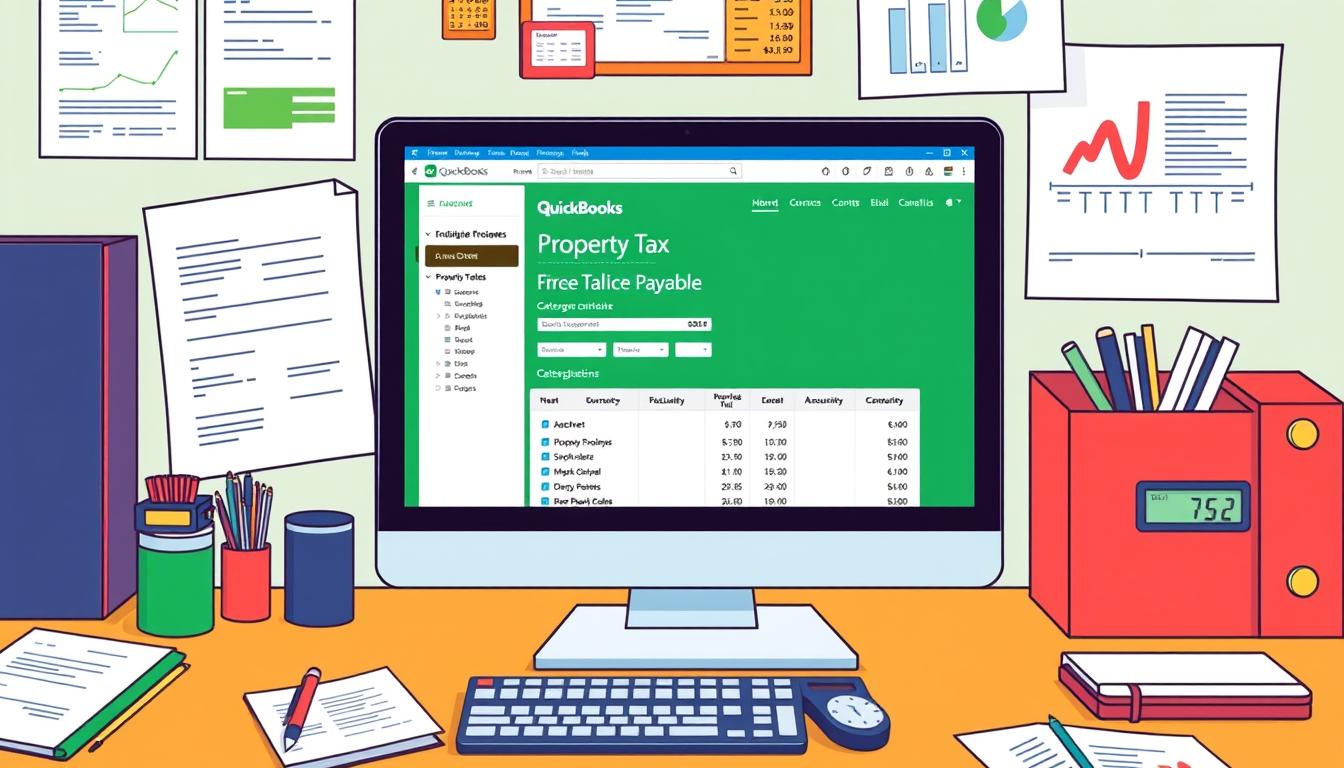
Can you delete everything in your quickbooks account
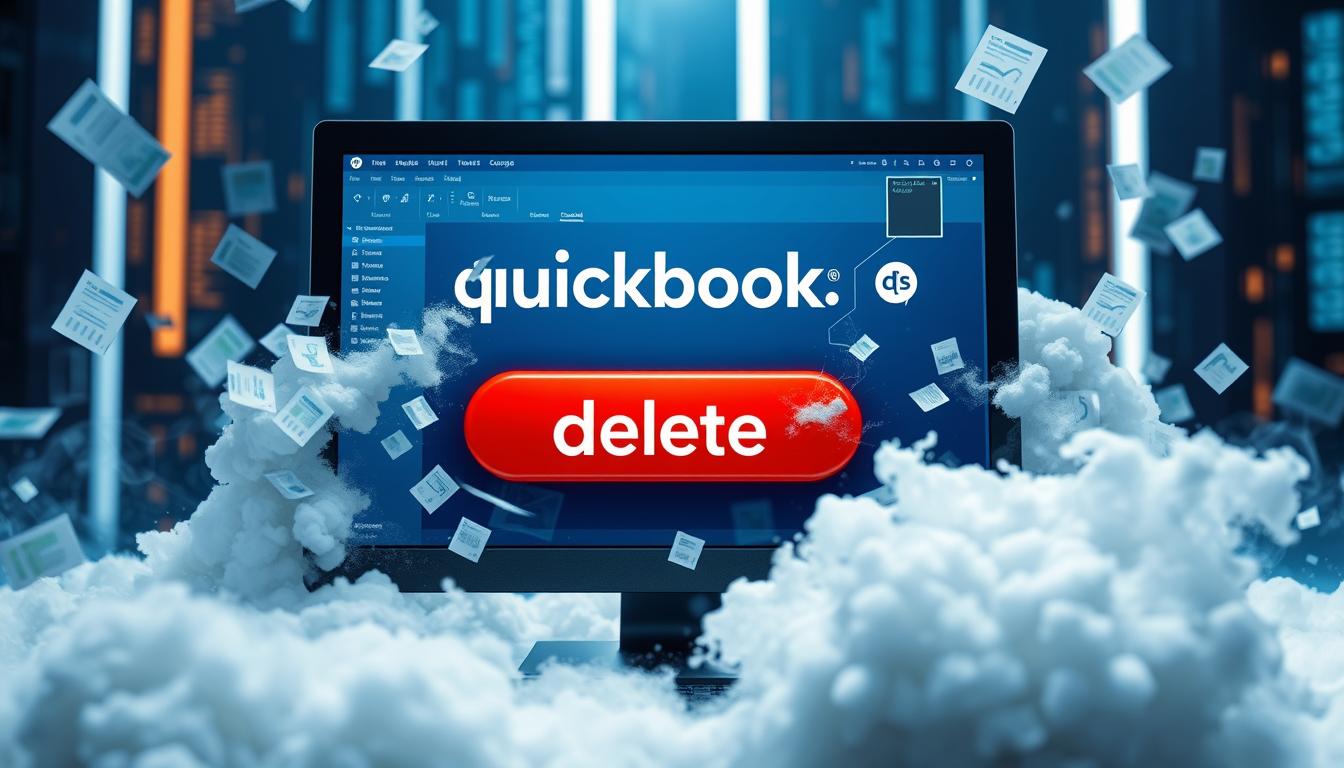
Table of Contents
Managing your QuickBooks account well is key. Sometimes, you might think about deleting your QuickBooks account or clearing all data. This step is not simple; it has big implications for your finances and legal needs.
Before you decide to erase your QuickBooks entries, check your financial records carefully. It’s important to see if you really need to take such a big step. Also, looking into other options can help you manage your QuickBooks account better without deleting it.
Key Takeaways
- Assess the implications of deleting your QuickBooks account.
- Evaluating financial records is crucial before making drastic changes.
- Clearing QuickBooks data can affect financial reporting.
- Consider alternatives to deletion for better account management.
- Understand the impact of erasing QuickBooks entries.
Understanding QuickBooks Account Management
Managing a QuickBooks account well is key for businesses to keep their finances in order. QuickBooks is a top bookkeeping software that makes handling financial transactions easier. It helps with creating invoices, tracking expenses, and making detailed financial reports.
Good QuickBooks account management boosts financial oversight. It lets businesses track their finances accurately and meet tax rules. Keeping records organized helps avoid deleting lots of data later.
It also helps spot trends, make smart decisions, and keep finances healthy.
- Invoice Generation: Streamlines billing processes.
- Expense Tracking: Keeps tabs on spending habits.
- Financial Reporting: Provides insights into business performance.
Using these features helps create detailed financial records. It shows how important it is to keep a QuickBooks account organized. Proper use of this software brings long-term benefits, helping businesses succeed.
Reasons to Delete Your QuickBooks Account
Many users think about deleting their QuickBooks account for personal and professional reasons. One big reason is having outdated financial records. When a business changes a lot, old records are no longer useful. This makes managing data hard.
Technical problems can also push people to delete their account. If the same errors keep happening and fixing them doesn’t work, starting over might be the best choice. Also, having too much data can make it hard to track money well.
People often want their data to be clean and easy to organize. Starting fresh can make things clearer and help work better. It’s important to think carefully about deleting and if a good plan for managing data can fix problems.
| Reason | Description |
|---|---|
| Outdated Financial Records | Older records slow down processes and can mislead financial reporting. |
| Data Management Concerns | Cluttered accounts lead to inefficiencies in tracking and evaluating finances. |
| Technical Issues | Persistent errors can make the software frustrating to use, prompting users to start fresh. |
| Desire for a Fresh Start | Eliminating past data allows for a clearer focus on current business objectives. |
How to Backup QuickBooks Data Before Deletion
Backing up QuickBooks data is key to protecting your financial records before you delete anything. This step helps keep important information safe from accidental loss. QuickBooks makes it easy to create secure backups of your data.
To backup your QuickBooks data, just follow these steps:
- Open QuickBooks and go to the File menu.
- Choose Back Up Company and then Create Local Backup.
- Choose where you want to save the backup file.
- Click OK to start the backup and wait for the confirmation.
For extra safety, consider exporting important data to Excel. This makes managing your data more flexible. Always backup QuickBooks data and check that it’s saved correctly.
Also, look into cloud storage for your backups. It makes your data more accessible and secure. If you accidentally delete something, knowing how to QuickBooks data recovery can be reassuring. Learn how to check if your data can be restored from backups.
Steps to Delete Specific Entries in QuickBooks
Deleting specific entries in QuickBooks can make your financial records clearer and more accurate. To delete entries in QuickBooks, start by going to the right section. This could be transactions, invoices, or expenses you need to change.
Once you find the entries, pick the ones you want to delete. Look for the delete option, usually near the edit buttons. Before you delete, double-check each item. This step helps avoid deleting important financial data by mistake.
It’s also good to think about other options. For example, you can void entries instead of deleting them. This keeps your historical data safe while fixing any mistakes.
| Action | Purpose |
|---|---|
| Select Entries | Identify the specific transactions or records you want to delete. |
| Review Entries | Ensure the correctness of your selections to avoid losing important information. |
| Delete Function | Execute the delete command to permanently remove selected entries. |
| Consider Voiding | Opt to void entries instead of deleting for better record maintenance. |
By following these steps, you’ll know how to remove transactions in QuickBooks. This keeps your records accurate and current.
Can You Delete Everything in Your QuickBooks Account?
Many users wonder if they can delete everything in QuickBooks. QuickBooks lets you delete single transactions and records. But, wiping out all data is harder.
To clear QuickBooks account data, consider a full account reset. This method involves several steps. It can make your financial records cleaner. Yet, keeping some data for audits might be necessary.
Think about if deleting everything fits your accounting needs. Keeping some records can be useful for efficiency and history. Here are key points to consider:
| Action | Description | Benefit |
|---|---|---|
| Archiving Data | Storing old data separately while keeping current records intact. | Prevents clutter without losing historical context. |
| Deleting Transactions | Removing specific entries that are no longer needed. | Improves account clarity and accuracy. |
| Creating a New Account | Setting up a fresh account to start anew without old entries. | Allows for a completely clean slate. |
Checking for Dependencies Before Deletion
Managing your QuickBooks account means knowing about QuickBooks dependencies. These are important links between different records. Deleting something can mess up many areas, like transaction dependencies. For example, deleting an invoice might mess up your financial reports, making them wrong.
Before you delete anything, think about this:
- Find out which transactions are linked, like payments to invoices.
- Look for bills connected to certain expenses to avoid mistakes.
- Do a detailed check of your account to find any record links.
Ignoring these connections can cause big problems with your financial reporting. It’s smart to check all transaction dependencies before making changes. This can save you time and money later on.
Cleaning Up Your QuickBooks Account for Efficiency
Keeping your QuickBooks account clean is key for any business wanting to work better. It’s important to organize your data well. Start by getting rid of duplicate entries that mess up your records. This makes everything clearer and keeps all important info in one spot.
Then, think about archiving old data. Only keeping current transactions helps focus on what’s important for your books. Regularly archiving data also makes your system run faster.
How you categorize transactions is also crucial. Make sure each one is filed correctly. This makes it easier to find what you need and helps in making accurate financial reports.
It’s also important to regularly check and fix your accounts. Set a time to review your records and fix any mistakes. This keeps your financial info right and helps keep things organized.
Don’t forget about how your records look and feel. Create a dashboard that shows important info clearly. A well-designed QuickBooks interface can make things easier to use and less cluttered.
| Strategy | Description | Benefit |
|---|---|---|
| Merging Duplicates | Identifying and combining duplicate entries. | Enhances clarity in records. |
| Archiving Old Data | Removing inactive transactions from active view. | Improves system performance. |
| Categorizing Transactions | Filing entries under appropriate headings. | Simplifies access and reporting. |
| Regular Reviews | Consistent assessment of account accuracy. | Promotes data integrity. |
| User-Friendly Layout | Designing an intuitive dashboard for metrics. | Enhances overall user experience. |
By using these methods to clean up your QuickBooks account, businesses can work more smoothly and get better results.
Best Practices for Maintaining Your QuickBooks Account
Using QuickBooks best practices makes managing your finances easier and cuts down on mistakes. A key strategy is to regularly check your data against your financial statements. This step helps ensure your income and expenses are correct, making your maintaining accounting records more reliable.
It’s also crucial to back up your QuickBooks data often. This keeps important information safe and lets you recover it if something goes wrong. Keeping your QuickBooks software updated is another must. This way, you get the newest features and security fixes.
Getting help from QuickBooks training resources can also boost your skills. Online forums are great for sharing bookkeeping tips and tips. Being part of these groups helps you learn more and stay up-to-date with the latest in QuickBooks.
| Best Practice | Description | Benefit |
|---|---|---|
| Data Reconciliation | Regularly verify that your financial records match bank statements. | Reduces discrepancies and ensures accuracy. |
| Regular Backups | Create backups of your QuickBooks data frequently. | Protects against data loss and allows for recovery. |
| Software Updates | Keep your QuickBooks software up to date with the latest features. | Enhances security and functionality. |
| Training Resources | Utilize online courses and forums for learning. | Improves proficiency and knowledge of software features. |
By following these tips, you can manage your QuickBooks account better. These practices help protect your data and make using QuickBooks more efficient. They ensure your financial management is accurate and smooth.
Exploring Alternatives to Deleting Your QuickBooks Account
Before you decide to delete your QuickBooks account, look at other options. You might want to reorganize your financial records to keep them accurate. Instead of deleting everything, you can archive old data. This way, you can clean up your account without losing important information.
QuickBooks has a feature called “clean company file” that lets you start fresh. It keeps your historical data safe. Also, there are account management solutions in QuickBooks that can improve your experience. They give you more control without needing to delete your account.
Here are some QuickBooks alternatives:
- Reorganizing financial records
- Archiving outdated transactions
- Employing summary reports for clarity
- Utilizing automated workflows to optimize performance
Check your needs against what QuickBooks offers. Spending time on this can help you manage your finances better. You won’t need to delete your account if you explore these options.
Understanding the Recovery Options for QuickBooks Data
Users sometimes lose important information in QuickBooks. QuickBooks data recovery is key in these cases. It has built-in features to help get back lost or deleted entries.
One good way is to retrieving deleted entries from backups. QuickBooks lets you make backups often. This way, you can easily get back your data.
The audit log is another great tool. It tracks changes in your QuickBooks account. This helps you find and fix changes or deletions quickly.
Here are some tips for keeping your data safe:
- Make backups regularly to save all your data.
- Check your recovery options often to see if they work.
- Keep backups in different places, like on-site and in the cloud.
Using these data backup methods boosts your chances of recovering data. It also gives you peace of mind. With the right steps, losing data won’t be a big worry.
Switching to Another Accounting Software
Thinking about changing your accounting software? Start by looking at what each option offers. Check if they have the features you need, like payroll or inventory tracking.
The user interface is also important. A simple and easy-to-use layout can make your work easier. Also, compare the prices. Some software has different plans for different business sizes.
Don’t forget about customer support. Choose a software that offers good help, like live chat and detailed guides.
When moving to a new software, make sure it can handle your current data. This is key to keep your financial reports up to date.
- Sage Accounting
- Xero
- FreshBooks
- Wave Accounting
- Zoho Books
These are good alternatives to QuickBooks. They offer features that might fit your needs better.
| Software | Features | Pricing | Customer Support |
|---|---|---|---|
| Sage Accounting | Invoicing, expense tracking | Starts at $10/month | 24/7 support |
| Xero | Multi-currency support, reporting | Starts at $12/month | Email and online support |
| FreshBooks | Time tracking, client dashboards | Starts at $15/month | Live chat and email support |
| Wave Accounting | Free accounting, invoicing | Free | Email support |
| Zoho Books | Automated workflows, project management | Starts at $15/month | Email and chat support |
Take your time to evaluate these points. This will help you make a smooth switch to a new accounting software.
Conclusion
Mastering QuickBooks account management is key for good financial data handling. We looked at what happens when you delete data from QuickBooks. It’s important to know the effects of such actions.
Deleting entries or accounts affects your financial records and reports. We also talked about other ways to keep your finances organized without deleting data. Using these methods helps keep your records accurate and easy to follow over time.
Think about your own situation and the information we shared about deleting accounts. Making these decisions carefully is important. It helps protect your financial data and improves your QuickBooks experience.
FAQ
Can I delete my entire QuickBooks account?
QuickBooks lets you delete individual entries and transactions. But, deleting your whole account is not easy. You might want to archive old data or start a new account instead.
What are the consequences of deleting my QuickBooks account?
Deleting your QuickBooks account means losing important financial records. This could mess up your financial reports and tax obligations. Make sure you really need to delete it before you do.
How can I back up my QuickBooks data before deleting?
Use QuickBooks’ built-in backup feature to save your data. You can also export files to Excel and save them in cloud storage. Backing up regularly is key to avoid losing data.
What are reasons to delete entries in QuickBooks instead of the whole account?
You might delete entries to fix errors, manage old records, or start fresh. Deleting specific entries keeps your financial records in order without losing everything.
Are there alternatives to completely deleting my QuickBooks account?
Yes, you can reorganize your records, archive old data, or use “clean company file” to update your data. These options help keep your financial history intact.
How do I ensure I don’t mess up other entries when deleting records?
Always check for linked transactions that could be affected by deletions. A detailed audit of your financial records helps avoid mistakes in your reports.
What best practices should I follow for maintaining my QuickBooks account?
Regularly reconcile accounts, back up data, and keep your software updated. Following accounting principles and getting QuickBooks training are also important.
How can I recover deleted entries in QuickBooks?
QuickBooks has recovery options like restoring from backups and using the audit log. Regular backups make it easier to recover deleted entries.
What should I consider when switching from QuickBooks to another accounting software?
Look at features, user interface, pricing, and support of other programs. Plan for data migration to keep your financial reports consistent during the switch.
- Tags: intuit quickbooks, intuit quickbooks login, intuit quickbooks online, quickbook, quickbooks, quickbooks accounting software, quickbooks customer service, quickbooks customer service number, quickbooks desktop, quickbooks desktop 2024, quickbooks log in, quickbooks login, quickbooks login online, quickbooks online, quickbooks online accountant, quickbooks online accounting, quickbooks online customer service, quickbooks online login, quickbooks online pricing, quickbooks payroll, quickbooks self employed, quickbooks software, quickbooks support phone number, quickbooks time, quickbooks time login, quickbooks workforce
Top Products
- QuickBooks Desktop Pro 2024 US Version
- QuickBooks Desktop Pro 2023 US Version
- QuickBooks Desktop Pro 2022 US Version
- QuickBooks Desktop Premier 2024 US Version
- QuickBooks Desktop Premier 2023 US Version
- QuickBooks Desktop Premier 2022 US Version
- QuickBooks Desktop Accountant 2024 US Version
- QuickBooks Desktop Accountant 2023 US Version
- QuickBooks Desktop Enterprise 2024 US Version
- QuickBooks Desktop Enterprise 2023 US Version
- QuickBooks for Mac 2024
- QuickBooks for Mac 2023
Popular Posts

How to categorize property tax payable in quickbooks online
Knowing how to categorize property tax payable in QuickBooks Online is key for keeping your financial records right. Property tax payable is the amount your business owes in property taxes. It can greatly affect your financial health. By learning to categorize property tax well, businesses can make sure their financial statements show their true obligations.
This knowledge is crucial as we dive into the steps and best practices for handling property tax payable in QuickBooks Online.
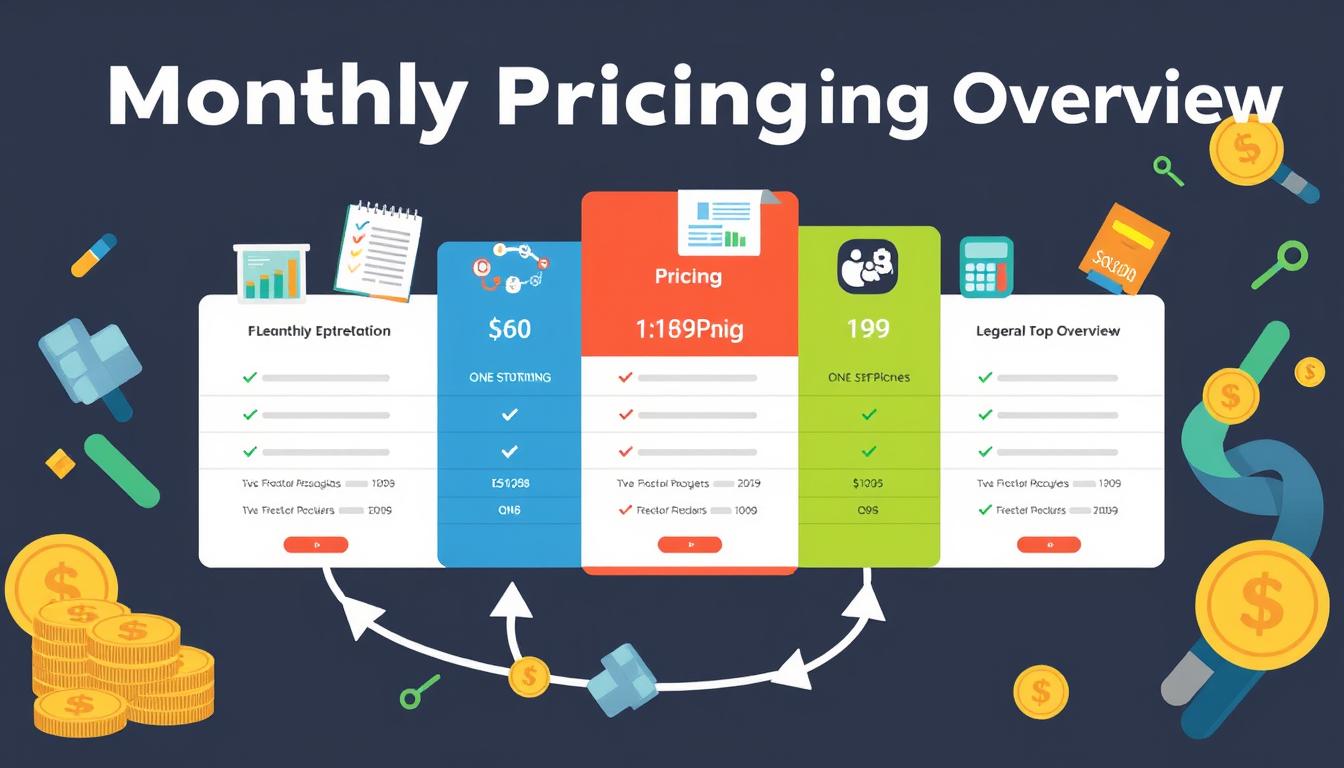
How much is quickbooks per month
Many users want to know the QuickBooks pricing for monthly costs. QuickBooks has various plans for different business needs. This lets users pick the right plan for their financial management.
What affects the QuickBooks monthly cost includes the QuickBooks edition, payment frequency, and extra features. This guide will explain the details of these plans. It will help you understand the costs of using QuickBooks for your business.

How does quickbooks work
QuickBooks is a key accounting software made by Intuit. It helps businesses manage their finances well. It works on a cloud-based platform, so users can access their financial data from anywhere.
This software makes tasks like bookkeeping, invoicing, and financial reporting easier. In this article, we’ll look at QuickBooks’ main features, its users, benefits, and challenges. We aim to help you understand how it can improve your financial management.

How do you record insurance payment in quickbooks
Recording insurance payments in QuickBooks is key for good insurance accounting. It helps business owners manage their money well and keep their books right. This is vital for the health of any business.
In this guide, we’ll show you how to record insurance payments easily. We’ll use QuickBooks guides and tips from accounting experts. This way, you can keep your financial records up to date.
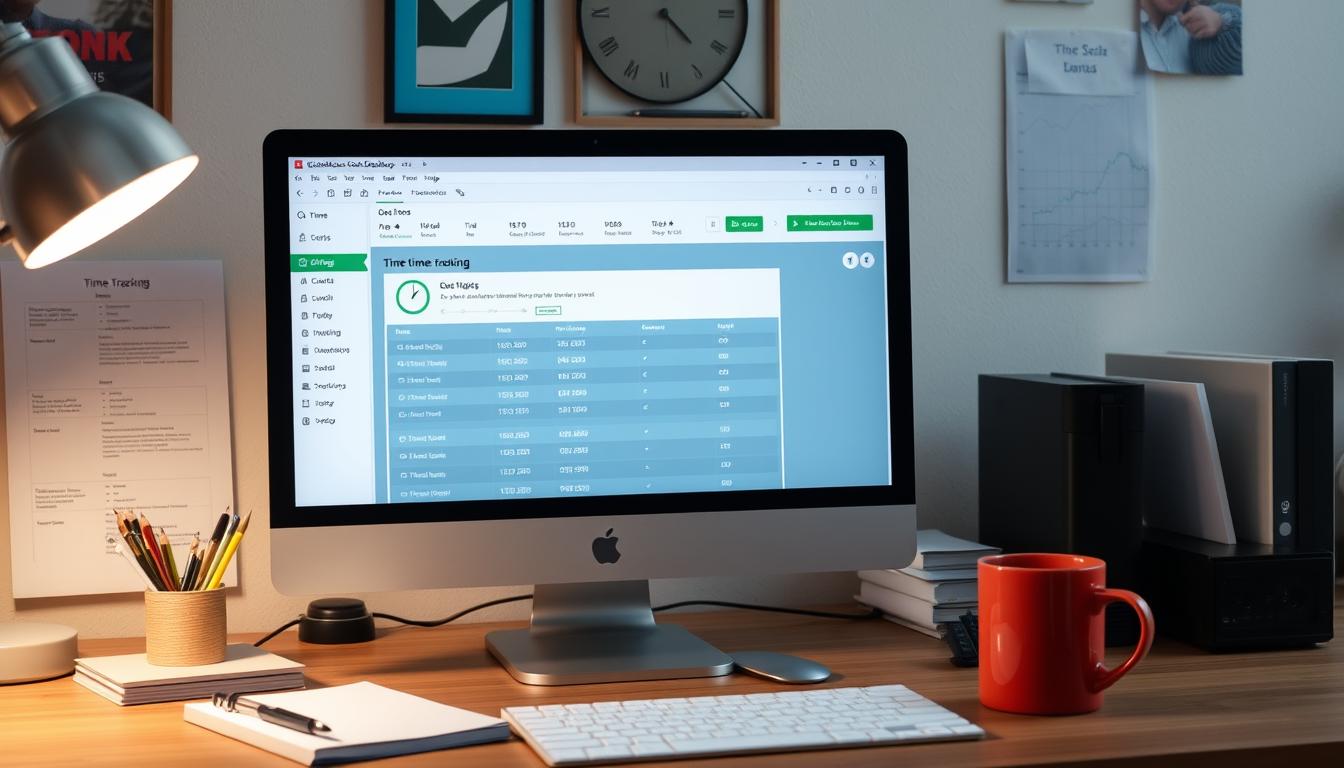
How do you clock in hours in quickbooks desktop
In today’s fast-paced world, tracking time well is key for good payroll management. This article will show you how to clock in hours in QuickBooks Desktop. It’s a top accounting software that makes managing tasks easier. By learning how to track time, businesses can work better and pay employees right.
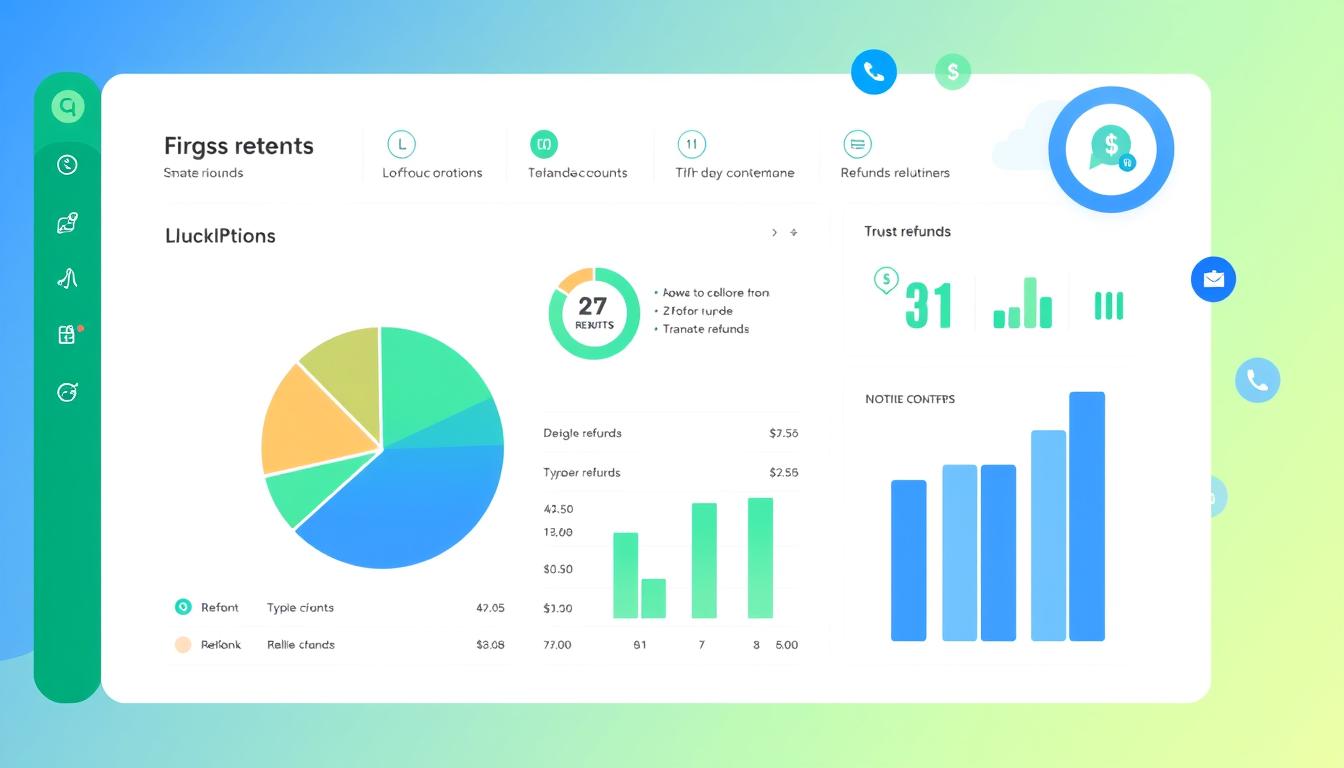
How are refunds categorized in quickbooks online
Knowing how to categorize refunds in QuickBooks Online is key for good financial management. It’s important to record refunds correctly to keep your finances clear. Businesses of all sizes can benefit from knowing how to do this right.
This knowledge helps make your financial records clear and accurate. It’s a basic step that can make a big difference.

Does quoteiq accept quickbooks online payments
Payment solutions are key in today’s business world. Many are looking into how platforms like QuoteIQ can improve their invoicing. A big question is: does QuoteIQ accept QuickBooks Online Payments? This article explores how QuoteIQ and QuickBooks Online Payments work together.
This shows how important it is to have good payment integration. It helps with cash flow and makes operations smoother. We’ll look at the benefits of using QuoteIQ with QuickBooks Online Payments. Plus, we’ll show you how to set it up.
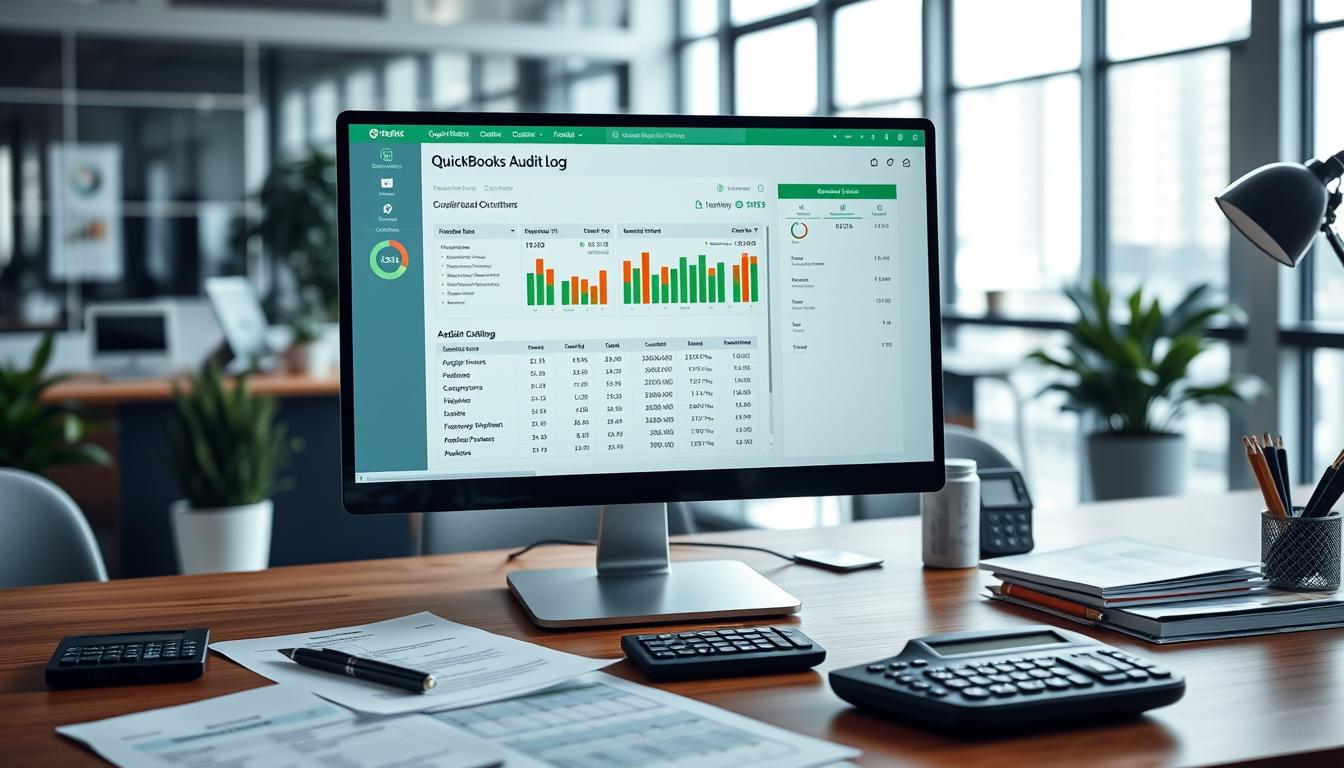
Can you delete history under audit log quickbooks online
It’s important to know if you can delete entries from the audit log in QuickBooks Online. This is key for businesses that focus on financial accuracy and follow the rules. The audit log QuickBooks Online keeps a detailed history of changes to financial data. This ensures that all account activities are recorded clearly.
By tracking these changes, the audit log is crucial for good financial management. We will look into why the audit log matters and what happens if you try to delete its records. We’ll see how these actions impact your QuickBooks history.
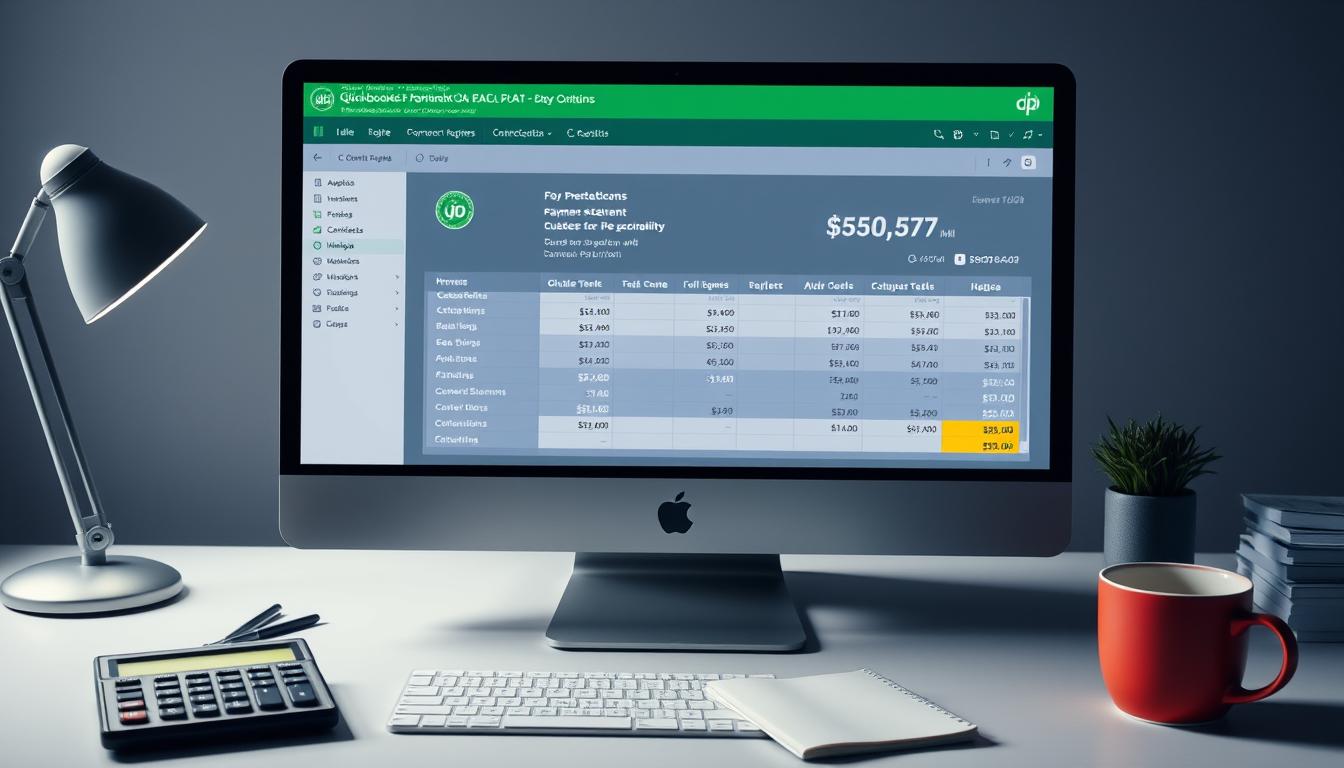
Can quickbooks recievepayment by statements rather that individual invoices
In today’s fast-paced world, businesses need quick and easy ways to handle payments. Many QuickBooks users wonder if they can pay by statements instead of invoices. This method makes accounting simpler for companies.
Using payment statements has big advantages over traditional invoices. QuickBooks helps businesses manage payments better. This article will show you how payment statements work in QuickBooks and how they can help your business.
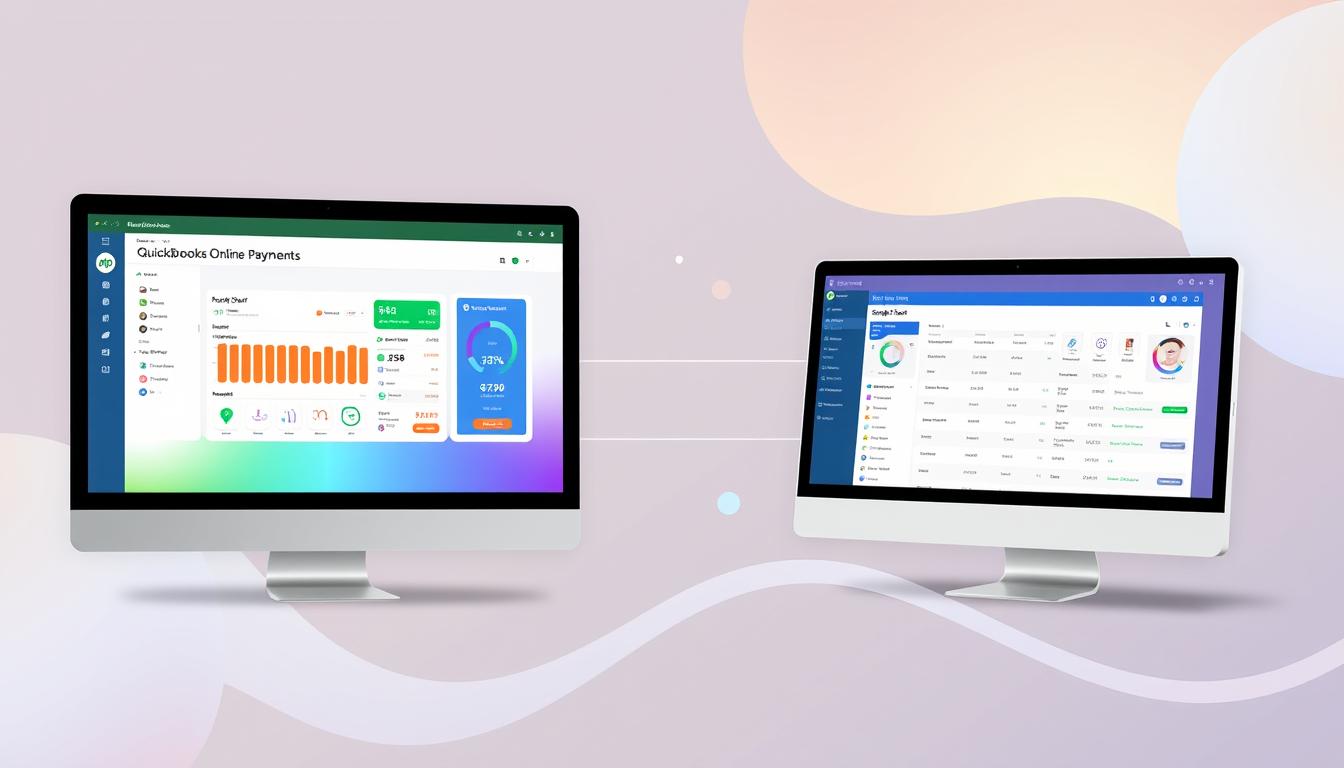
Can quickbooks online payments work with simple start
For small business owners, the question of whether QuickBooks Online Payments and QuickBooks Simple Start can work together is key. This integration is vital for managing finances effectively. It helps users handle transactions smoothly while using a basic accounting tool for solo businesses.
QuickBooks Online Payments lets users take payments online, making cash flow management easier. In this article, we explore how these two tools can boost efficiency for small businesses.